Crypto exchanges are how many buy, sell, and trade cryptocurrencies.
Many of the best exchanges used globally, include Coinbase, Binance, and MetaMask (to name a few).
The current global crypto market cap is over $3 trillion, highlighting the massive activity on these exchanges.
However, the downside to crypto’s rising prices is the unfortunate increase in risk, especially on exchanges.
There have been many high-profile hacks, closures, and issues with liquidity.
A famous example is the collapse of FTX, which left thousands of users unable to withdraw their assets!
Another crypto exchange risk is theft, famously when Mt. Gox was hacked in 2014.
Knowing these crypto exchange risks is the first step in protecting your investments and avoiding major losses.
Key Risks Associated with Crypto Exchanges
Protecting yourself from crypto exchanges risks should be at the top of your security requirements.
As there is a lot of activity on exchanges, they are prime targets for hackers.
Security Vulnerabilities and Cyber Threats
The most frequent vulnerabilities that exchanges face are:
➡️Hacking attempts
➡️Phishing scams (emails, fake websites, false apps with malware)
To fight against these threats, many exchanges have implemented security measures to their platforms, including multi-sig access, hardware security modules (HSMs), cold storage, and firewalls.
But, the best thing you can do to take control of your crypto’s security is to use a cold hardware wallet, like Material Bitcoin, and never rely on an exchange wallet, even if they use cold storage!
Major Crypto Exchange Hacks & Losses
| Year | Exchange | Amount Lost (USD) | Cause | Outcome |
|---|---|---|---|---|
| 2014 | Mt. Gox | $59 Billion (Estimated at current prices) | Hacking & Security Breach | Exchange Shut Down, Bankruptcy Filed |
| 2016 | Bitfinex | $72 Million (at the time) | System Exploit | Partial Fund Recovery, Compensation Issued |
| 2018 | Coincheck | $530 Million (at the time) | Hot Wallet Breach | Exchange Resumed Operations Post-Hack |
| 2019 | Binance | $570 Million (at the time) | Phishing & API Vulnerability | Funds Reimbursed via SAFU Fund |
| 2022 | FTX | $477 Million (at the time) | Fraud & Mismanagement | Collapse, Legal Proceedings Ongoing |
Market Volatility and Price Fluctuations
Depending on how you view it, market volatility can be positive or negative.
For most traders, it can be used to their advantage but for normal Joe investors, it is a cause for panic.
For example, in the spring of 2021, the price of BTC dropped by 30% within a few hours.
This caused panic selling for many because of regulatory changes made in China.
The issue here is that this can lead to major liquidating issues for exchanges, meaning that you can’t make trades or withdraw funds.
Panic selling can also lead to prices dropping even further as people dump their crypto.
Smaller exchanges can literally lose everything in these cases and shut down.
Regulatory Challenges and Legal Compliance
As we mentioned, regulatory issues worldwide can influence crypto exchanges risks.
The U.S. and the European Union have strict KYC regulations and anti-laundering rules.
However, other jurisdictions lack regulations, have no-KYC exchanges, and are even crypto tax “havens”.
Did You Know?
In the past, Binance has had regulatory issues and bans in multiple countries, including the U.K.
This has led to temporary shutdowns or even funds to be frozen.
Operational Risks and Technical Failures
Even big-name exchanges are targets and vulnerable to operational failures.
From server crashes, withdrawal delays, and technical bugs, these exchanges can slow down due to high volume.
Not providing operational transparency to customers can cause disasters, especially for smaller or new exchanges.
A great example of this happened in May 2022, when Celsius Network froze their customer’s withdrawals.
This left thousands of users losing access to their funds…however, this issue was worse than originally thought: On July 13, 2022, Celsius Network filed for bankruptcy, stating that its liabilities exceeded its assets by more than one billion dollars.
How to Identify a Reliable Crypto Exchange
There are many user guides and forums like Reddit and YouTube that you can use to research reliable crypto exchanges.
Luckily, we’ve condensed the important info for you…
How Do I Know If a Crypto Exchange Is Legit?
It can be tempting to sign up for “new and up and coming” crypto exchanges as many offer deals and special offers.
But please, take it from us…to avoid crypto exchanges risks, review these key criteria:
1️⃣Licenses and Regulatory Compliance
- Confirm that the exchange is registered with financial authorities in its operating countries. For example, in the U.S., exchanges are regulated by the Financial Crimes Enforcement Network (FinCEN).
2️⃣Reputation
- Reputable exchanges will openly share details about their founders, and team members.
- The more information you can find about the exchange, the more likely they are legit.
3️⃣Security Certifications
- Besides using a cold storage wallet and a 24-word backup wallet, look for certifications like ISO/IEC 27001. This means that they have strong cybersecurity measures in place.
4️⃣User Feedback and Reviews
- Search for user reviews on platforms like Reddit or influencer guides on YouTube.
- Some good options include r/Bitcoin – exchange reviews
| Red Flags | What to Avoid! |
|---|---|
| 🧐📄Unclear or Hidden Terms of Service |
|
| 💸💰High or Unexpected Fees |
|
| 🚫⚖️Lack of Regulation |
|
| 🔓❓No Security Information |
|
| 🚨🎁Suspicious Promotions |
|
Which Crypto Exchange is a Safe Bet?
You’re probably wondering, “Has there ever been a crypto exchange that’s never been hacked“?
No crypto exchange is ever 100% immune to hacking and scams.
But, they’ve learned from past mistakes and have a long streak of high-quality, secure usage.
Coinbase Pro – This is one of the most regulated exchanges in the U.S. and therefore a popular option for many crypto traders.
Kraken – Known for leading security best practices, the exchange has not been successfully hacked since its founding in 2011, although it’s had minor security breaches.
Gemini – Gemini is regulated by the New York State Department of Financial Services (NYDFS). Although it offers hot wallet services, it has insurance coverage for digital assets.
Binance – Back in 2019, Binance had a major hacking. They managed to reimburse users with its Secure Asset Fund for Users (SAFU). Today, it’s one of the leading crypto exchanges.
Remember ❗
Even the most secure exchanges will face breaches and cyber attacks.
Moving large amounts of crypto to a cold wallet like Material Bitcoin after trading is best.
This will guarantee your funds remain safe even if an exchange gets hacked.
Strategies to Protect Your Cryptocurrency
Many crypto exchange risks can be avoided by taking strong measures yourself.
Of course, the platform itself should employ strong features, but there are a few practices that you can do too.
Best Security Practices
✔️Use a strong and unique password
- Create long passwords with uppercase, lowercase, numbers, and special symbols.
- Do not use the same password for multiple wallets.
- Don’t store your password digitally!
✔️Use a special email address for your crypto accounts
- Set up a specific email for all crypto accounts (avoid using your personal one).
- Enable email 2FA if available for this account.
✔️Never use public WiFi or communal networks
- Don’t access your crypto exchange accounts using public WiFi (hackers love it when you do!)
- Use a VPN for added protection.
✔️Update your device
- Regularly update your operating system and software.
- Use reliable antivirus and anti-malware.
✔️Be Aware of Phishing Scams
- Double-check URLs before logging in to your exchange.
- Never click on links from suspicious emails or direct messages on social media.
Use a Crypto Wallet for Storage: Cold Wallets vs. Hot Wallets
Crypto wallets are a must for avoiding crypto exchanges risks.
But, choosing the right type of wallet can make all the difference in securing your funds.
Hot wallets are internet-connected wallets that many exchanges provide via their platforms.
They are convenient options but are very susceptible to hacks.
On the other hand, cold wallets operate offline.
They keep your assets safe from online threats as they are not connected to the internet.
Why Cold Wallets Are Better for Long-Term Storage
Cold wallets reduce exposure to online threats since your private keys are stored offline.
Better yet, you can use Material Bitcoin to buy BTC directly, eliminating the need for an exchange!
Stay Safe in the World of Crypto Trading
To protect your assets from crypto exchanges risks, choose secure exchanges, practice strong security habits, and avoid keeping your crypto on exchanges long-term.
For maximum protection, always use a trusted cold storage wallet to keep your crypto safe from online threats.
FAQs
What should I do if my crypto exchange gets hacked?
- Withdraw your funds, report the issue, and monitor your accounts closely.
How can I recover funds lost on a crypto exchange?
- Recovery depends on the exchange’s policies and legal actions.
Are decentralized exchanges safer than centralized ones?
- DEXs reduce then custodial risks but lack regulation and user support. This is a personal choice.
What are the signs of a phishing attack?
- Look for fake emails, suspicious links, and withdrawal requests.
How do crypto regulations vary by country?
- Rules are different in each country. Please be aware of your rights and regulations.
What’s the safest way to store large amounts of cryptocurrency?
- Always use a cold wallet like Material Bitcoin and a backup seed phrase wallet.
How do I verify the credibility of a crypto exchange?
- Check the exchange licenses, reviews, and security features.
How do hardware wallets improve crypto security?
- They keep your private keys offline, making them immune to online hacks.

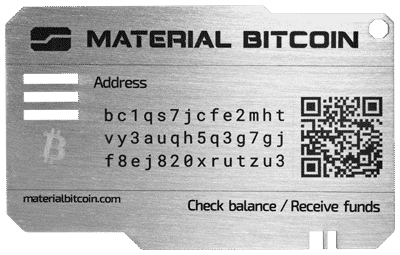
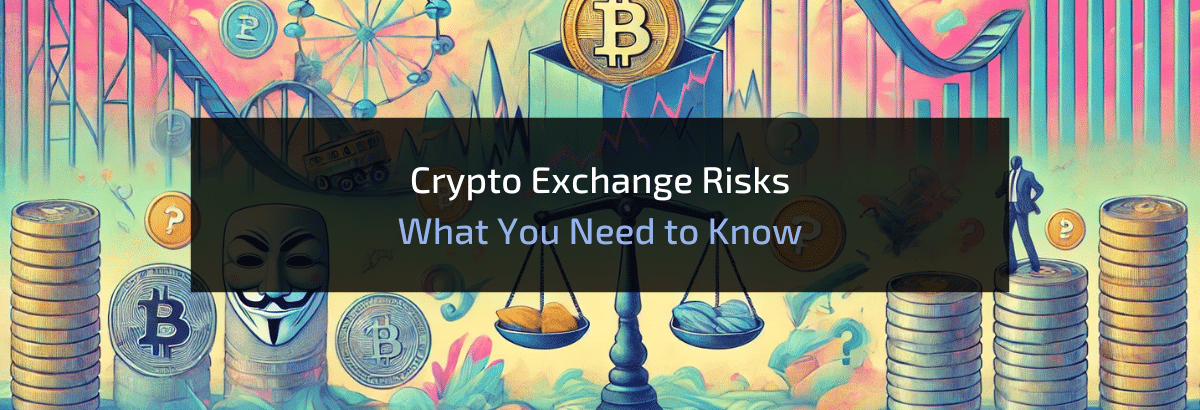

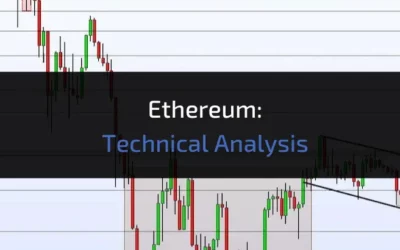



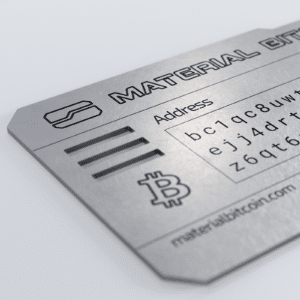

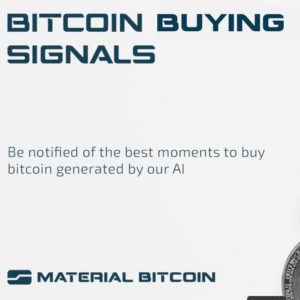
0 Comments